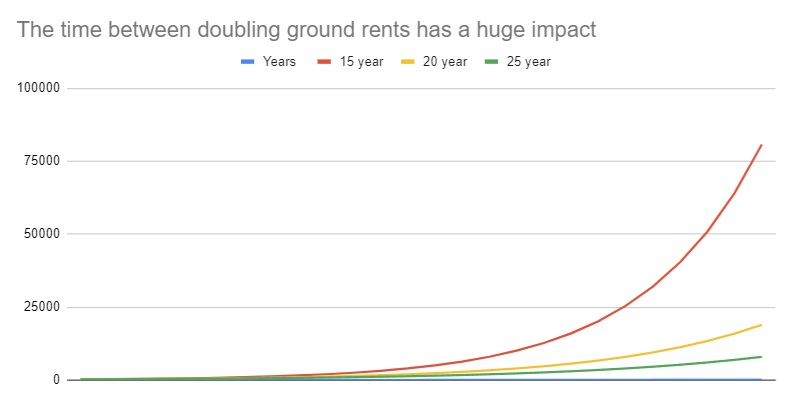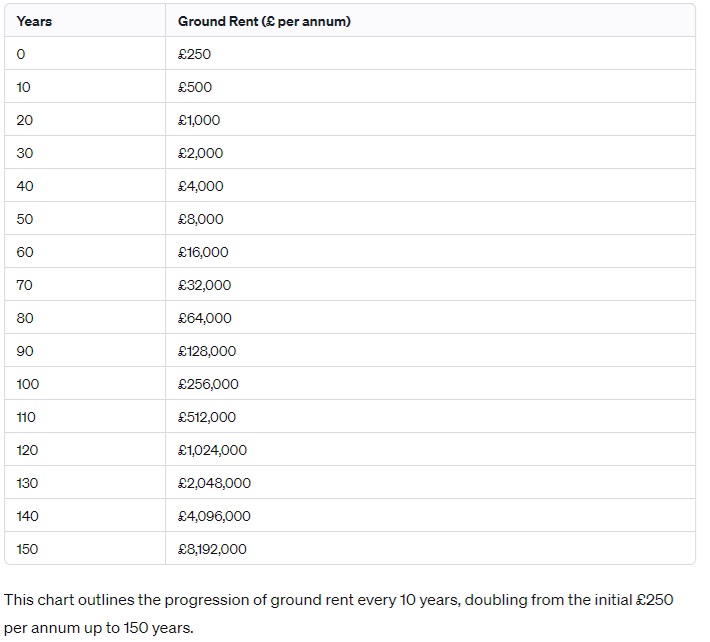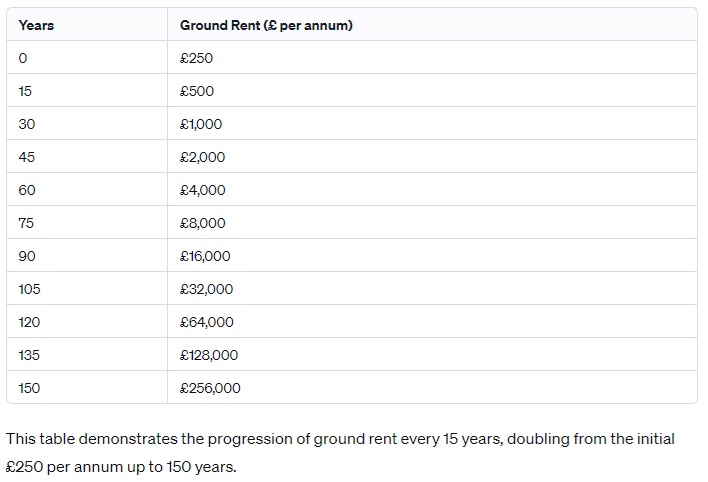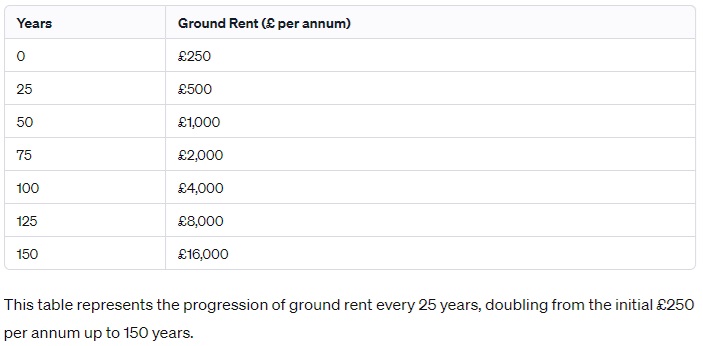Doubling Ground Rent
If your lease contains a doubling ground rent clause then you may need to address this urgently, before a remortgage or a sale. Doubling ground rent can potentially lead to significant increases over time, causing financial burdens for leaseholders and affecting the value of their properties. Such clauses have been a cause of concern for mortgage lenders.
Why doubling ground rent is a problem
Doubling ground rent results in exponential increases over time, as it acts in a compounding manner, making every previous increase in ground rent even more substantial with each future review.
Let’s take a look at the following chart which illustrates how doubling ground rent can have a substantial impact on a standard 125 year lease.
A lease that commenced in 1980 at a ground rent of £250 would have a ground rent of £1100 per annum by the year 2050, increasing to £64,000 in the final years of the lease. Due to these concerns, mortgage lenders may be hesitant to lend against properties with doubling ground rent clauses, which can limit the pool of potential buyers and affect property values in affected developments.
Fixing a doubling ground rent clause
A leaseholder has a legal right to claim nil ground rent for the remainder of the lease, but has to make a statutory lease extension application. As lease extension claims force the freeholder to cancel the ground rent entirely, this acts as a opportunity for a leaseholder to remedy the situation they find themselves in.

Government Reform
For new leases only, the government have made doubling groud rent clauses illegal. In fact freeholders can no longer grant a lease that includes any groud rent. Existing leases remain unchanged unfortunately - however leaseholders do have a legal right to cancel the ground rent, subject to a lump sum payment to the freeholder when extending their lease.
Doubling ground rent (years between impact)
The time interval between each ground rent review is critical. Ideally, a doubling ground rent clause should be a minimum of 20 years. Anything less results in a ground rent that is well ahead of inflation. Let's look at illustrations of how ground rent changes when doubled over specific periods of time.

Doubling Every 10 Years

Doubling Every 15 Years

Doubling Every 20 Years

Doubling Every 25 Years

Act now to remove your doubling ground rent
Instruct a specialist lease extension solicitor to commence your legal right to a nil / peppercorn ground rent.


